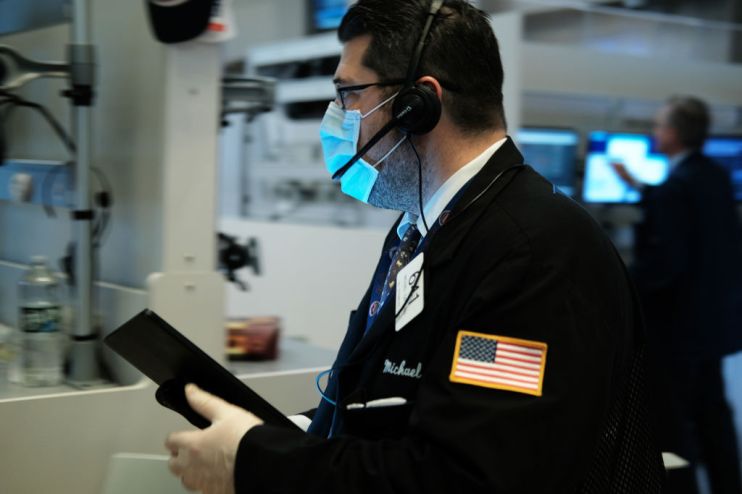US stocks jump as investors cheer apparent coronavirus slowdown

US stocks have surged in early trading as investors are encouraged by an apparent slowdown in the spread of coronavirus.
The S&P 500 jumped 4.9 per cent while the Dow Jones was up 5.2 per cent. The Nasdaq climbed 4.8 per cent.
Stocks were higher in Europe too. The UK’s FTSE 100 was up 2.8 per cent and Germany’s Dax had surged 5.8 per cent. The pan-European Stoxx 600 was up 3.7 per cent.
Investors have long said that only a reduction in the spread of the virus could meaningfully lift European and US stocks in the long run.
It has yet to be seen whether equities will continue rising. But investors are taking heart in signs that coronavirus is slowing in Italy, Spain, and France, where daily death tolls have slowed.
Markets have also looked with optimism upon plans to ease restrictions across Europe. Austria is set to become the first to ease its coronavirus containment measures. Its move will be a bellwether test case for the rest of the continent.
“The pandemic is finally starting to show signs of stabilising: the death tolls across France, Italy and Spain have started to reduce,” said Rachel Winter, associate investment director at investment manager Killik & Co.
She added that “in New York yesterday the first drop in the daily death rate was reported”.
“Markets do tend to be forward looking, and this potential stabilisation of the virus has allowed markets to look forward to a time when the global economy could potentially start to reopen.”
US stocks rise but oil prices choppy
The rising tide did not lift oil prices, however. Brent crude was down 2.9 per cent at $33.10 a barrel. Investors are uncertain whether Saudi Arabia and Russia will reach an agreement on production cuts.
Oil prices plunged in March after Saudi Arabia launched a price war against Russia. The move followed the breakdown of talks at the Opec+ oil cartel.
Opec+ is due to hold a digital meeting on Thursday, where investors hope a deal can be reached to cut production and hold up prices.
Graham Secker, equity strategist at Morgan Stanley, said that although peak volatility in equities markets seems to have been reached, there is still a great deal of macroeconomic uncertainty.
“The key issue here is not so much the depth of the economic collapse in the second quarter, but rather the pace of recovery thereafter,” he said.
“Absence newsflow around a medical solution for Covid-19, we suspect that investors need to recalibrate their expectations towards a slower and choppier return to some degree of normality.”